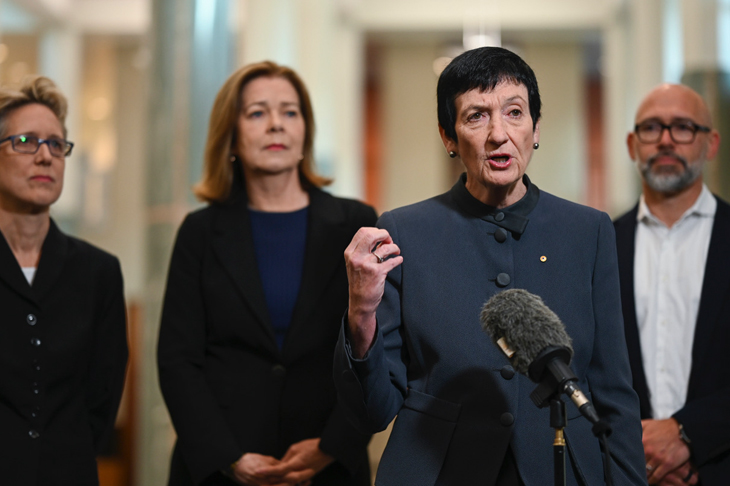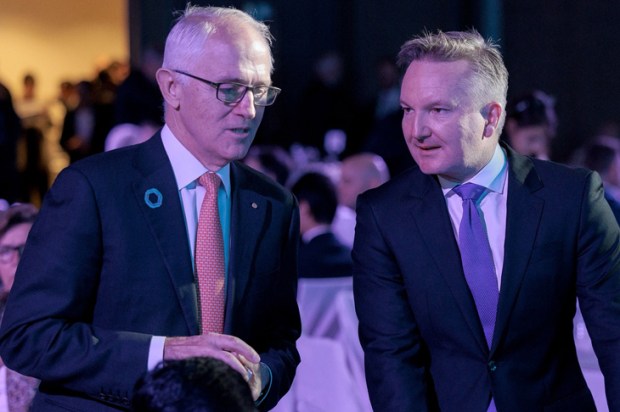I’m not sure I have much sympathy for the business community – or at least the groups representing the business community – as it dawns on them that they have been completely stitched up by the government’s industrial relations amendments.
What was the good of all that bonhomie, the spirit of cooperation at the invitation-only Jobs and Skills Summit held in September? Let’s not forget there was a rather tasteless struggle to obtain a ticket by business executives and employer organisations. No one from Australia’s four largest companies made the cut, although the industry super funds were there in droves.
To be sure, the usual suspects like the Business Council of Australia, the Industry Group of Australia, the Australian Chamber of Commerce and Industry and the Council of Small Business of Australia were all represented. But the people who head up these organisations are really the faces of crony capitalism whose main professional tasks are to do shady deals with the government of the day and just hope that the outcomes don’t hurt their members too much.
Both the BCA and COSBOA had form before the summit was even a consideration for Labor. The Coalition’s then industrial relations minister, Christian Porter, undertook a lengthy consultation and workshop process in order to introduce some amendments to the industrial relations laws. In addition to sorting out the definition of casual employment – and thereby ruling out any requirement for employers to stump up for backpay for imagined leave entitlements of casuals who worked regular hours – one principal aim was to simplify the rules that govern enterprise bargaining.
At this point, the chief executive of the BCA, Jennifer Westacott, decided to enter into an exclusive deal with the secretary of the Australian Council of Trade Unions, Sally McManus. Jen and Sal became best pals and decided that what was really required were special rules for union-approved enterprise agreements, which would be simply waved through by the Fair Work Commission. It was only when the other employer associations seriously arced up that the BCA withdrew from the deal.
For a number of reasons, you might expect big business to get into bed with the trade unions, but what was more extraordinary was the behaviour of COSBOA, the existence of which is ostensibly to represent the interests of small business. The then leader of COSBOA also decided to cut a deal with the ACTU, claiming that there was no need to tighten the definition of casual work. Bear in mind here that the owners of many small businesses make extensive use of casual employment and were legitimately concerned about the prospect of being up for backpay.
Given this backdrop, it might have been assumed that the BCA and COSBOA would not fall into the same trap of doing side deals with the ACTU in the event of Labor assuming government. But there are clearly a lot of slow learners hanging around these business groups because, going into the summit, both the BCA and COSBOA were keen to align themselves with the objectives of the ACTU and to be seen to be a ‘positive force for reform’. (That’s code for being taken to the cleaners, by the way.)
Jen and Sal even made a joint appearance on the ABC’s Insiders program on the Sunday before the summit was held. Declaring that she was on a ‘unity ticket’ with the ACTU to achieve higher wages, Jen didn’t hold back when talking about the uplifting spirit of cooperation she was feeling and castigating those cynical commentators who were writing the summit off as a self-serving Labor talkfest.
Needless to say, when Sal began blathering on about the need for multi-employer bargaining, Jen was a tad taken aback. No one had mentioned multi-employer bargaining to this point. It wasn’t part of Labor’s industrial relations policy platform; indeed, Jim Chalmers, now Treasurer, had explicitly ruled it out. Where did this leave Jen, Sal’s BFF? Sensing real danger – that is, a great deal of fury from some BCA members – Jen began to backpedal and has done so ever since. Likewise, COSBOA’s close relationship with the ACTU, something that was sustained during the summit, suddenly looked like a serious failure of judgment.
But both Labor’s Industrial Relations Minister, Tony Burke – don’t forget I warned you about him – and Sally McManus achieved what they wanted. The dyke had been breached and provision for multi-employer bargaining was suddenly on the table. The business community may now be united in its opposition, but that earlier period of the BCA and COSBOA being joined at the hip with the ACTU had served its purpose.
After all, Jen had really talked up being on the unity ticket on higher wages. What she didn’t appreciate was that unions think that multi-employer bargaining is the quickest route to achieving this outcome. Sal might just have to sit down with Jen to re-educate her on this point so she can appreciate its ‘truth’.
The broader point is that the business community’s attempts to stave off – or at least water down – multi-employer bargaining have been significantly weakened by the misjudged positioning of the BCA and COSBOA. Note in particular the ‘Secure Jobs, Better Pay’ amendments define small business as one with 15 or fewer workers – not 15 effective full-time workers, but 15 heads. Many suburban cafes have more than 15 persons on their books at any time. The intention of the government (and the ACTU) is only to exclude microbusinesses; otherwise, every other business is covered.
There may well be some warriors out there campaigning strongly against the changes – like Steve Knott who heads up the Australian Resources and Energy Employers Association (the old AMMA) – and some companies will donate money to fight the new laws through an adversting campaign and other means. Just don’t expect the pre-appeasers to join in – they will still be trying to secure favourable side deals based on what they perceive to be previous favours. It won’t work; it’s basically impossible to do a U-turn at high speed.
Here are some key questions: what is the future of some of these business groups, including the BCA? Do they really provide a useful role in representing the interests of businesses? Do businesses get value for money from the large sums required to be members? At the very least, we should expect some change to their leadership in the near future. Over the medium term, the damage to businesses that the changed laws will inevitably impose may mean that some of these questions will be given serious consideration.
Got something to add? Join the discussion and comment below.
Get 10 issues for just $10
Subscribe to The Spectator Australia today for the next 10 magazine issues, plus full online access, for just $10.
You might disagree with half of it, but you’ll enjoy reading all of it. Try your first month for free, then just $2 a week for the remainder of your first year.














Comments
Don't miss out
Join the conversation with other Spectator Australia readers. Subscribe to leave a comment.
SUBSCRIBEAlready a subscriber? Log in